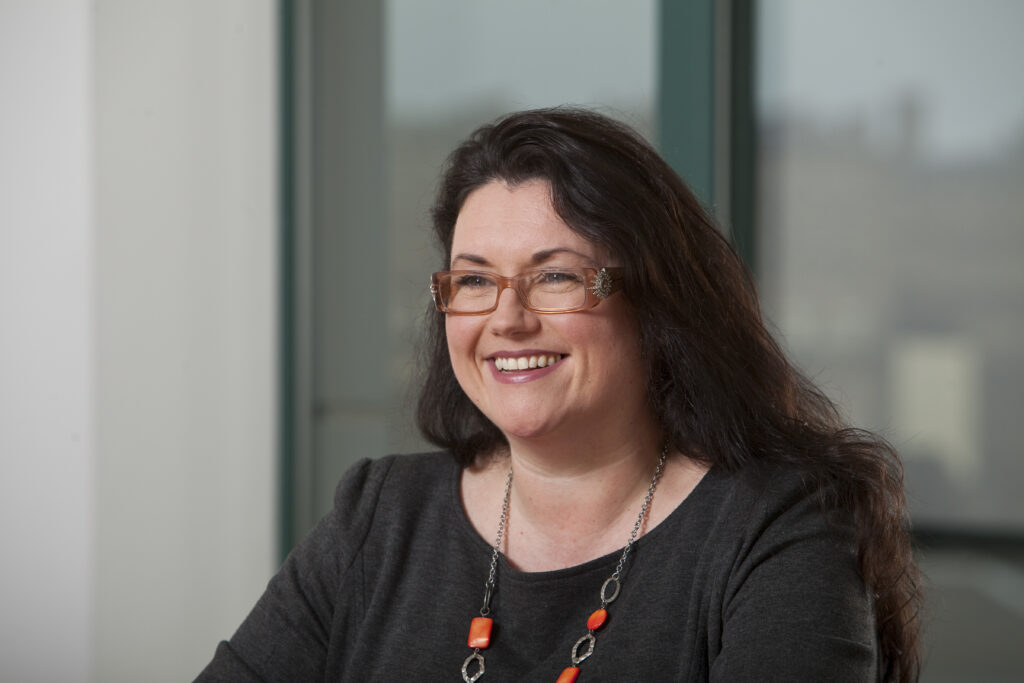According to Sir David Attenborough, Cop26 is a crucial event in the fight against climate change. It is also an opportunity for Scotland to become a world leader in the green revolution
The next few months will be momentous for Scotland when it comes to tackling climate change and promoting sustainability.
The eyes of the world will be on Glasgow which is hosting Cop26, the UN Climate Change Conference, from 31 October until 12 November.
The aim of the event is to bring parties together to accelerate action toward the goals of the Paris Agreement and the UN Framework Convention on Climate Change. It will be the biggest summit the UK has ever hosted, and it is being described as the most significant climate event since the 2015 Paris Agreement.
Cop26 has made its aims and ambitions clear, saying it wants to achieve the following:
- Secure global net zero by the middle of this century and keep the aim of limiting global warming to 1.5C within reach;
- Adapt to protect communities and natural habitat;
- Mobilise finance: developed countries will be expected to deliver on their promise to raise at least $100 billion in climate finance each year;
- Work together to deliver results – finalise the Paris Rulebook and turn ambitions into actions.
Broadcaster and natural historian Sir David Attenborough, who has been named as ‘Cop26 People’s
Advocate’ to inspire people to take action on climate change, has said: “The epidemic has shown us how crucial it is to find agreement among nations if we are to solve such worldwide problems.
“But the problems that await us within the next five to 10 years are even greater. It is crucial that these meetings in Glasgow, Cop26, have success, and that at last the nations will come together to solve the crippling problems that the world now faces.”
There was a frenzy of activity around 23 July when numerous organisations issued statements and made promises on tackling climate change to mark 100 days to Cop26.
At that time the Scottish Government set out plans on how it will meet the global goals of the previous Paris Agreement.
It is crucial that these meetings in Glasgow, Cop26, have success, and that at last the nations will come together to solve the crippling problems that the world now faces
Sir David Attenborough
Its indicative Nationally Determined Contribution (NDC) outlined Scotland’s contribution to preventing global warming of more than 1.5C and set out how Scotland plans to achieve its ambitious environmental targets.
Cabinet Secretary for Net Zero, Energy and Transport, Michael Matheson, said: “With Cop26 coming to Glasgow, Scotland has a unique opportunity to show leadership on climate action on the international stage.”
Meanwhile, Scotch whisky sites across Scotland welcomed MPs and MSPs to showcase the industry’s sustainability efforts as part of a ‘Countdown to Cop’ open day marking 100 days to the conference.
And industry body Scottish Renewables remains at the forefront of the green agenda in Scotland. As the voice of the renewables industry, it is welcoming the focus that Cop26 will bring.


Claire Mack is chief executive of Scottish Renewables and a Friend of Cop, a role that involves advising the UK Government and inspiring others in the sector ahead of the conference. She explains that in the decade to 2020 Scotland almost tripled its renewable energy capacity, from 4.3GW to 11.9GW.
“Scotland has decarbonised more quickly than any G20 economy since 2008,” says Mack. “Much of that progress was driven by a target that, by 2020, the equivalent of 100% of Scotland’s electricity consumption should come from renewables.
Today, the equivalent of 97.4% of Scotland’s electricity consumption is provided by renewables.”
Around two thirds of that renewable electricity comes from wind power, with the remainder coming from a mix of solar, hydro power, tidal and more.
Renewable energy employs more than 22,000 people in Scotland and was worth more than £5bn to the economy in 2019.
Mack adds: “That means Scotland has a fantastic story to tell the world as its eyes turn to Glasgow for Cop26 in November.
“Cop26 gives us the opportunity to talk about these achievements in a global context. As the rest of the world seeks to meet its commitments under the Paris Agreement of 2015, Scotland can reap the benefits of its first-mover advantage in renewable energy.
“We can show the world how to decarbonise quickly while maintaining economic growth, something which is particularly important as the world seeks to recover from the coronavirus pandemic.”
She says that cutting carbon emissions is at the centre of what all Cop events must deliver. While
Scotland has made great strides in cutting carbon from the production of electricity, there is still much to do on heat and transport – the source of most of Scotland and the UK’s carbon emissions.
Throughout 2021, Scottish Renewables is running its Year of Cop campaign to educate and inform people in Scotland – particularly those in the parts of the country where renewable energy resources
are strongest – about the contributions their area is making to the fight against climate change.
“The incredible achievements we have made in the decarbonisation of electricity were made, in large part, without input from most members of the public,” adds Mack.
“As we move onto the next stage of our decarbonisation journey, that will change.”
She says that homeowners will need to think about how they keep warm. For example, when gas boilers come to the end of their lives, they will be replaced with low-carbon alternatives such as heat pumps and solar thermal panels.
“We’ll also need to make decisions about how we move ourselves around: both the UK and Scottish
Governments have ambitious targets to bring the age of fossil fuel vehicles to an end in the coming decades. That will mean that your next car, or the one after that, is likely to be an electric one,” Mack explains.
She says people will need to think about their behaviours more generally, including reducing air travel,
cutting commuting and taking more personal responsibility for their emissions.
“To do all this, industry and government will need the support of the public, and Cop provides us with
a way to kickstart these crucial conversations and explain the benefits of making these changes, as well as the benefits of the changes we’ve already made,” says Mack.
Law firm Shepherd and Wedderburn is committed to achieving net zero greenhouse gas emissions
by 2030, which is why it signed the Edinburgh Climate Compact.
The firm is also a strategic partner to the Global Ethical Finance Initiative’s Path to Cop26 campaign. This campaign engages with financial institutions and organisations to amplify the pressing need for climate action and showcase existing efforts.

Claire Foster, head of clean energy and a partner in Shepherd and Wedderburn’s banking team, said: “It is essential that Cop26 facilitates a binding global commitment to ensure we achieve a cleaner, sustainable future.
“We have reached a pivotal moment, both in terms of witnessing the growing impact of climate change on countries around the world and in deciding how to rebuild world economies as we learn to live with the Covid-19 pandemic.”
She adds that recent extreme climate events in Germany, the United States and Canada, and closer to
home – such as flash flooding in London and Edinburgh – demonstrate “how precarious climate change has made our existence”.
Foster says the growing consensus is that a green economic recovery, focusing on clean energy and sustainability in all walks of life, is the only way to address these pressing challenges.
“This is not an issue for a particular country or sector – every country, every economy and every citizen is affected,” explains Foster.
“The challenge we face is formidable, but if everyone plays their part, governments, the public and private sectors and individuals, then it can be overcome. ”
Foster concludes: “The eyes of the world will be on us during Cop26 and we must not let this opportunity pass to galvanise extreme and urgent action.
“The UK, and Scotland in particular, has a proud history of innovation, both in terms of energy and infrastructure, and we have a unique opportunity to leverage that expertise and showcase how best to utilise our abundant natural resources.
“By doing so we can be the world leader in the green industrial revolution.”
Why education is key in responding to the climate emergency


It is estimated carbon emissions fell in 2020 by a startling five per cent due to the pandemic. BP estimates the world needs to average the same rate of decline every year for the next 30 years if we are to hit Paris climate goals and avoid a climate disaster.
The threat of climate change is real. The pandemic frightened the world into taking action, and it seems in the year of Cop26, we need to feel a similar sense of shock for meaningful action to be taken on climate change.
However, action can only be taken when there is a thorough understanding of the issues, and what will happen if we do not, globally, respond. Education is therefore absolutely key.
Every manager needs to have minimum basic knowledge. Thanks to a collaboration between the Royal Scottish Geographical Society (RSGS), University of Edinburgh, University of Stirling, and Institute of Directors (IoD) Scotland, this has been made as easy as possible, with the launch of a new online course, Climate Solutions.
Climate Solutions provides a quick, simple, and rounded introduction to the fundamentals of climate change, helping explain how everyone and every organisation can play a role to reduce their emissions, and informing businesses and organisations so they can better plan and predict future trends, legislation, and change.
It focuses on the need-toknow information and outlines the key solutions managers can implement. Several forward-thinking organisations have already enrolled their staff members on to Climate Solutions.
This includes leading global technology enabled solutions provider, Jacobs, which is encouraging all employees to complete the course as part of its efforts to ensure they understand the role they can play in climate change action.
Zoe Haseman, Jacobs Vice President, Global Sustainability said: “As we look ahead to Cop26, we cannot underestimate the importance of greater collaboration and education for transformational action on climate change.
“The Climate Solutions Accelerator course has provided a valuable learning resource to educate our people and empower them to act.
“It is only by garnering a collective response that we can ensure business, the communities in which we live and work, wider society and our natural environment survive and thrive for generations to come.”
NatureScot Chief Executive Francesca Osowska added: “Climate literacy is hugely important. The Climate Solutions courses are an engaging and stimulating way to get to grips with all the challenges of our changing climate, forming part of our own internal climate change learning, ensuring that all staff get a thorough grounding in what they must do in their role in order to help us as an organisation move towards NetZero by 2035.”
Climate Solutions is offered in two ways: Climate Solutions Professional and Climate Solutions Accelerator.
Climate Solutions Professional
Climate Solutions Professional consists of four two-to-threehour online modules. The modules short-cut vast amounts of literature and learning, provide a good basic understanding of the science, and focus on the minimum essential information needed to respond.
On completion of the modules, participants will attend an online workshop delivered by expert
project partners and will start to develop the Climate Action Plan for their business. Participants receive a certificate on completion. The cost is £300 including VAT per person.
Climate Solutions Accelerator
The Climate Solutions Accelerator online course lasts just 90 minutes. Managers will learn
directly from the world’s leading experts the practical solutions they can implement to respond
to climate change. Participants receive a certificate on completion. The cost is £120 including VAT per person.
To find out more or to sign up, please visit www.climatesolutionsnetwork.com or email
climate.solutions@rsgs.org.



